Parliament proposes measures against heavy schoolbags.
While the Government is struggling with the aftermath of the most brutal wildfires in history – killing more than 100 people – political parties in Parliament made recommendations last week to reduce the weight of school bags, after a petition on that matter – initiated by actor JoséWallenstein – had yielded more than 50.000 public signatures in February.
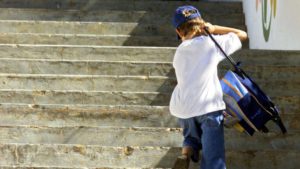 According to the Consumer Defence Association (DECO), two-thirds of the Portuguese schoolchildren carry backpacks, that are too heavy.
According to the Consumer Defence Association (DECO), two-thirds of the Portuguese schoolchildren carry backpacks, that are too heavy.
But does that matter?
Apparently, as studies from several countries indicate that children carrying backpacks exceeding 10% of their bodyweight – the upper limit according to the World Health Organization – are more likely to get neck, shoulder and back pain. There is, however, no evidence that carrying heavy bags cause any lasting deformity such as scoliosis, which is a persistent curvature of the spine.
![]() The propositions on schoolbags had been prepared for some months by a special parliamentary working group – coordinated by Amadeu Albergaria of the Social Democratic Party (PSD).
The propositions on schoolbags had been prepared for some months by a special parliamentary working group – coordinated by Amadeu Albergaria of the Social Democratic Party (PSD).
The final resolution – supported by all parties – recommends more lockers in schools, expansion of digital learning tools in class, thinner manuals and books with lightweight paper, permanent instead of variable classrooms and better collaboration between teachers regarding the frequency and amount of homework.
 The parliamentarians moreover, propose a national awareness campaign to better monitor the weight of schoolbags by teachers, parents and students and the Directorate-General for Health will be asked to perform a study on the effect of the weight of the schoolbags on children’s health.
The parliamentarians moreover, propose a national awareness campaign to better monitor the weight of schoolbags by teachers, parents and students and the Directorate-General for Health will be asked to perform a study on the effect of the weight of the schoolbags on children’s health.
Backpacks are best for backs because they have two shoulder straps – a bag carried on one shoulder is more likely to cause pain. The bags should be packed evenly and carry only what is needed for that day. Children should be encouraged to use school lockers for items they don’t need all day.
BOM FIM DE SEMANA (photo’s Observador/Sapo)

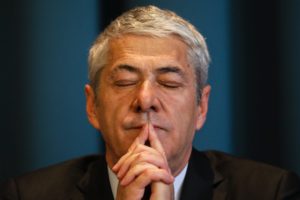 On November 21st at 10 PM, 2014 José Sócrates – ex-prime minister and former leader of the Socialist Party – was arrested at Lisbon’s airport, after flying home from Paris, under suspicion of money laundering, corruption, forgery and fiscal fraud.
On November 21st at 10 PM, 2014 José Sócrates – ex-prime minister and former leader of the Socialist Party – was arrested at Lisbon’s airport, after flying home from Paris, under suspicion of money laundering, corruption, forgery and fiscal fraud. It’s for the first time in the history of Portugal, that a former prime minister is accused of corruption during the execution of his function as head of state. But that’s not all. Operation Marqués also incriminates ex-CEO’s from big government agencies like Portugal Telecom and the state-owned bank Caixa Geral dos Depositos.
It’s for the first time in the history of Portugal, that a former prime minister is accused of corruption during the execution of his function as head of state. But that’s not all. Operation Marqués also incriminates ex-CEO’s from big government agencies like Portugal Telecom and the state-owned bank Caixa Geral dos Depositos.
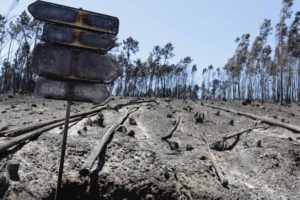 Large parts of the countries interior look spooky these days with charred trees and incinerated road signs.
Large parts of the countries interior look spooky these days with charred trees and incinerated road signs.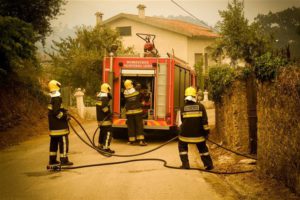 “Climate change causes many problems, but if I had to name the one that worries me most, it would be the increase in the number of wildfires – especially this summer as the fires caused many deaths in our country”, says a boy of the group of children – aged between 6 and 14 – from Leiria, seeking crowdfunding to sue 47 European countries for their failure to tackle climate change, threatening their right to life.
“Climate change causes many problems, but if I had to name the one that worries me most, it would be the increase in the number of wildfires – especially this summer as the fires caused many deaths in our country”, says a boy of the group of children – aged between 6 and 14 – from Leiria, seeking crowdfunding to sue 47 European countries for their failure to tackle climate change, threatening their right to life. “Tragedies like this are becoming the new norm because governments are failing to make the necessary cuts to their greenhouse emissions”, according to a spokesman from GLAN.
“Tragedies like this are becoming the new norm because governments are failing to make the necessary cuts to their greenhouse emissions”, according to a spokesman from GLAN.
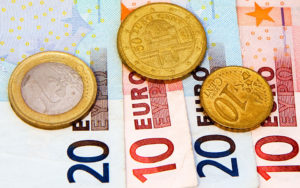 ‘To think that nowadays in our country one million people – that is 10% of the population – regular have to skip meals due to financial problems is a shame’, says Carla Lopes, a nutritionist at the Public Health Institute of the University of Porto.
‘To think that nowadays in our country one million people – that is 10% of the population – regular have to skip meals due to financial problems is a shame’, says Carla Lopes, a nutritionist at the Public Health Institute of the University of Porto.